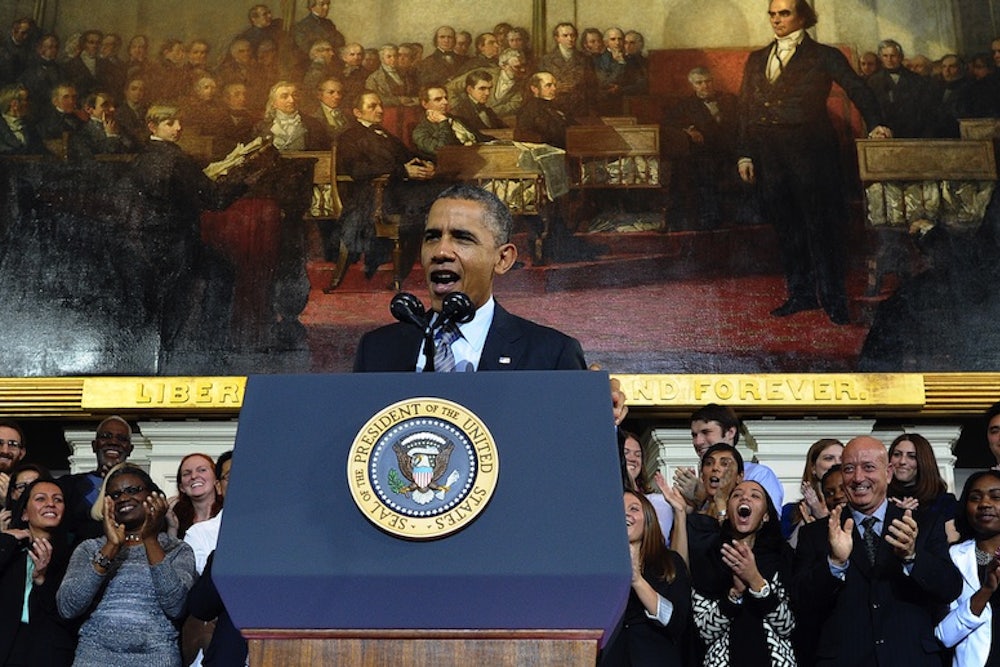President Obama on Friday acknowledged that some people are losing their current health plans because those plans don't live up to the Obamacare's standards for benefits and pricing. The acknowledgement is true and overdue, given the president's frequent promise that "you can keep your plan" if you like it. But how many people?
Actual, hard numbers on this are hard to find. But we can make a reasonable guess. As readers of this space know, a large majority of Americans have health insurance from an employer or from Medicare and Medicaid. For most of these people, very little about their health plans are changing because of the law, at least outwardly. The big transformation is for people who have no insurance (who will finally get access to it) or to those who buy coverage on their own now. Among that latter group, some will end up paying more for coverage (they'll have "rate shock") and some will end up paying less (they'll have "premium joy").
One person who can vouch for this breakdown is Jonathan Gruber, the MIT economist who was an advisor to Governor Mitt Romney and then to President Obama when each was crafting his health reform plan. Gruber was on hand for the president's visit to Boston yesterday and gave an interview to Ryan Lizza of the New Yorker. From the material in that interview, University of Michigan and Brookings economist Justin Wolfers constructed the following chart:
To be clear, this is an extremely rough approximation, in more ways than one. (The experience of the people buying coverage on their own is more varied and complex than the chart suggests.) And in a country of 300 million, 3 percent still represents a lot of people. But to stick with one of my themes, all policy choices involve trade-offs. The higher premiums that some people will now pay for insurance are the price of a system that makes coverage available to all, at uniform prices, regardless of medical condition—and that establishes a basic set of benefits that no plan may omit. Obamacare attempts to minimize the impact by providing subsidies, generous enough so that people stuck with higher bills can, by and large, afford them. But there's no denying that some people will pay more, whether because rates go up or they have to buy more expensive plans.
Is the tradeoff worth it? That's obviously a matter of opinion. And a true accounting would include all of the law's costs (like higher taxes on the wealthy, lower Medicare spending on various medical providers, etc.) as well as all the benefits (new incentives for quality care, more prescription drug coverage for seniors, etc.). But the old system had its costs, too—costs that even people paying low premiums sometimes faced.
After all, if you were holding one of those cheap policies, you might get sick and face crippling medical bills. Or you might end up with a condition that, later on, subjected you to higher premiums and left you unable to switch policies. As Gruber told Lizza, "no law in the history of America makes everyone better off.”
Update: I added an extra sentence about the rest of the trade-offs in the law, as there are a whole bunch of them.
